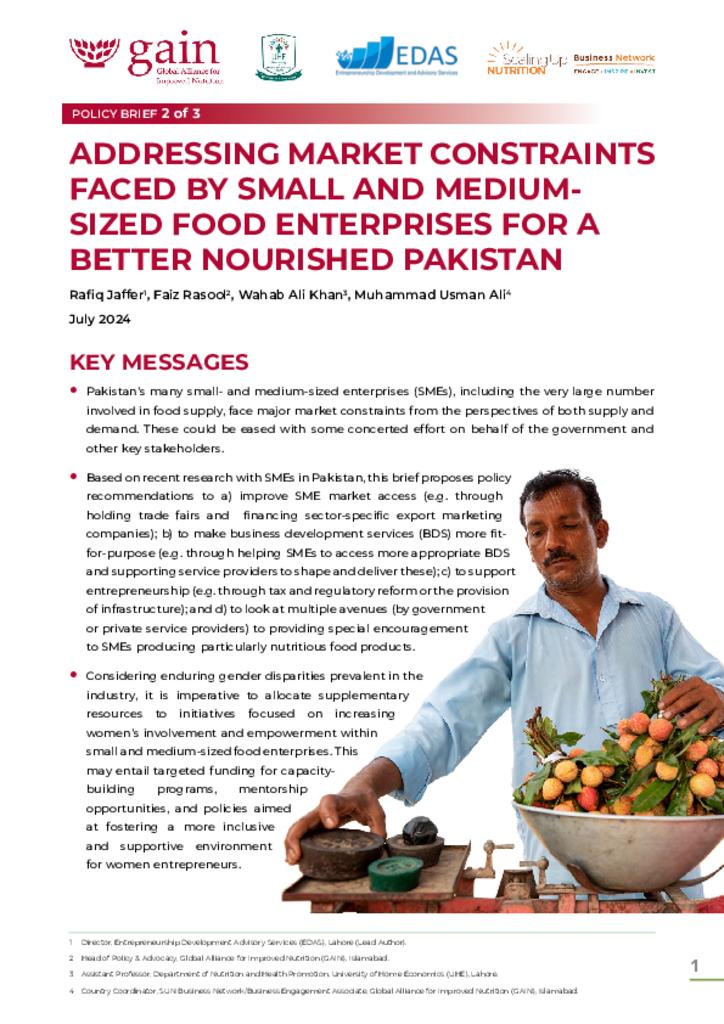About this brief
In the context of the latest national SME policy “2021 SME Policy Pakistan”, and findings from a recent in-country survey executed by Entrepreneurship Development and Advisory Services (EDAS) and supported by GAIN, this brief, focuses on constraints in the market from supply- and demand perspectives facing SMEs. Its two sister briefs have been prepared using the most up-to-date research (conducted over the last 5 years) on ongoing issues faced by Pakistani SMEs, particularly food-related SMEs, to develop policy recommendations.
SMEs in the food sector
The food sector is considered Pakistan’s largest industry, accounting for 27% of national value-added production, and 16% of total employment in the manufacturing sector. Much of this food manufacturing and processing is small- or even micro-sized, and many of these businesses are in rural areas, depending heavily on agricultural raw materials and poorly skilled non-farm labor (SMEDA, 2021). Unfortunately, not enough of the food that is available, affordable and desirable, from SMEs and other sources, is nutritious, safe and sustainable. SMEs face many barriers, including operating in environments that do not always reward good practices. In many cases, SMEs require more support and appropriate incentives to underpin the major changes in our food systems that are needed to protect people and the planet (GAIN, 2021). Evidence suggests SMEs, including those in the food sector, are constrained by cross-cutting market constraints from both supply and demand sides, by the macro policy and regulatory environment (See Policy Brief-1 “Macro policy and regulation change can better nourish Pakistan- Creating an enabling environment for small- and medium-sized food businesses”) as well as low access to financing (See Policy Brief-3 “Improving access to finance for small and medium-sized food enterprises for a better nourished Pakistan”) (CDPR, 2023). Investment in safe and nutritious products is suboptimal as profit margins in the food and nutrition industry can be relatively low. This means that businesses need to be very efficient to be profitable (Jabeen et al, 2023).
